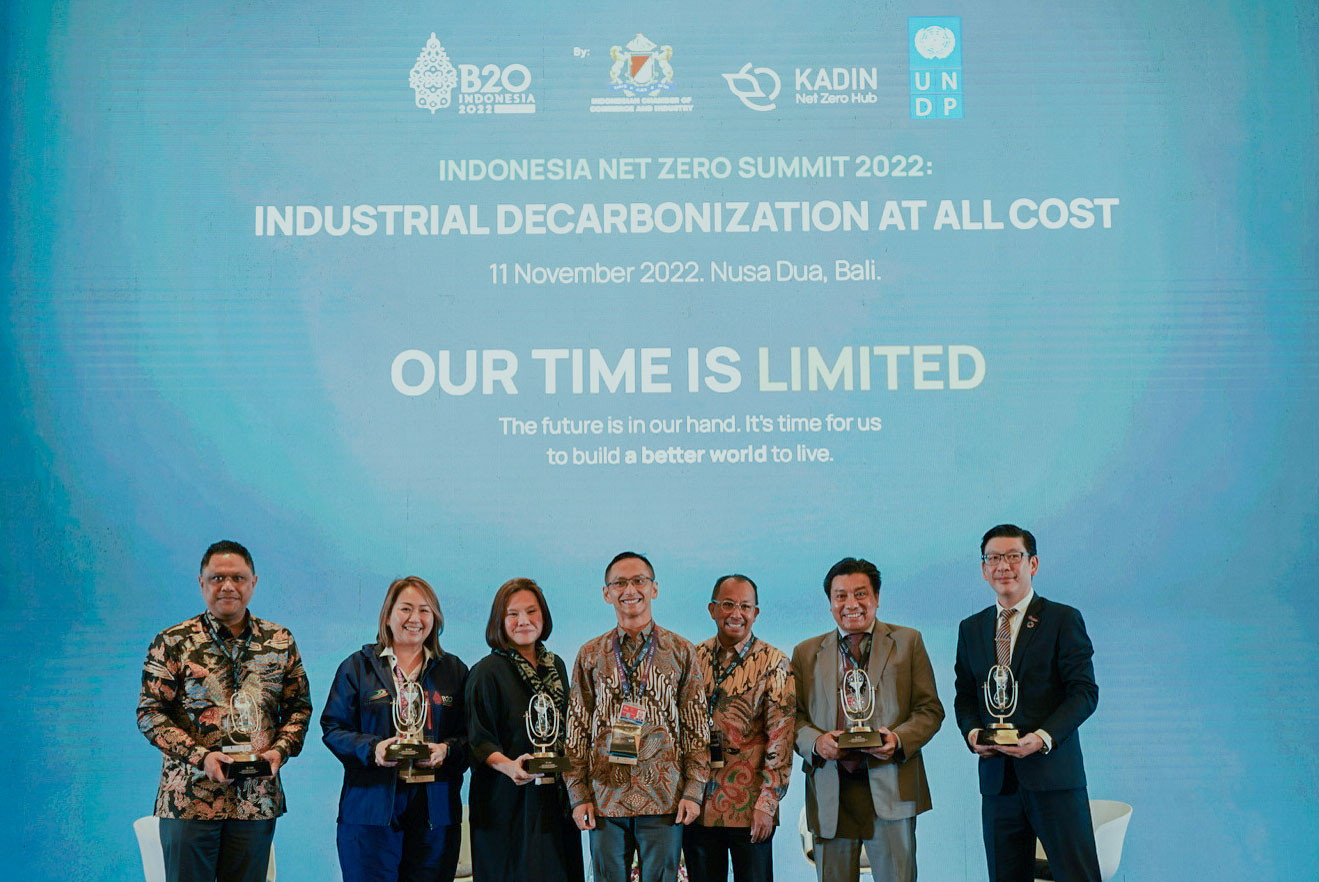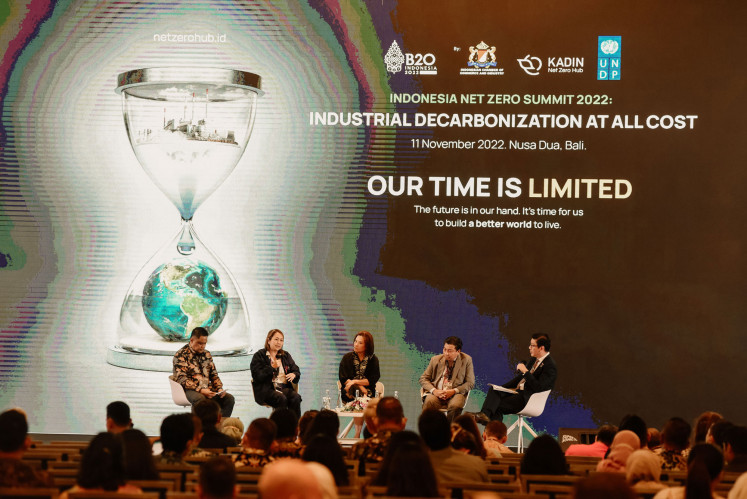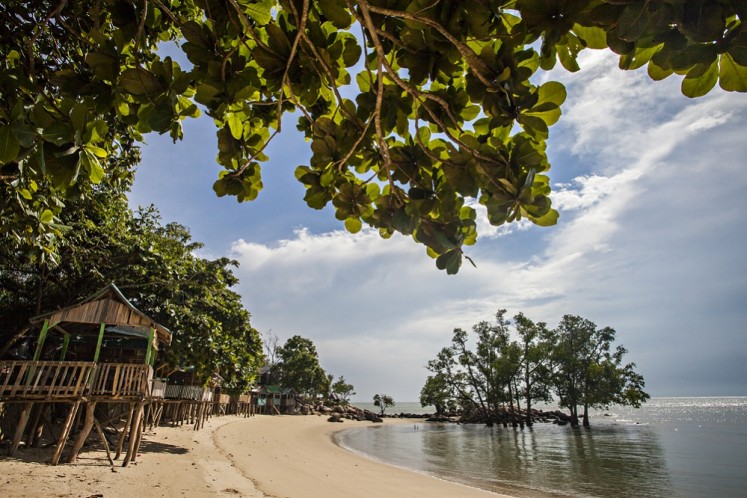Popular Reads
Top Results
Can't find what you're looking for?
View all search resultsPopular Reads
Top Results
Can't find what you're looking for?
View all search resultsAchieving Net Zero with End-to-End Corporate Governance and Decarbonization strategies
Change text size
Gift Premium Articles
to Anyone
A
s part of the commitment to reduce greenhouse gas emissions, the Indonesian Chamber of Commerce and Industry’s (KADIN) Net Zero Hub invited a number of stakeholders to the Indonesia Net Zero Summit 2022 in Bali with the theme of “Decarbonization at all costs” on Nov. 14.
The issue of climate change has been one of the main talking points during the Indonesian Group of 20 presidency. G20 members are responsible for 78 percent of global carbon emissions, making it a priority for all parties to take strategic steps to minimize their impact.
“The government bears a great responsibility to preserve the planet for future generations. As such, all policies made must be calculated carefully,” said Coordinating Minister for Maritime Affairs and Investment Luhut Pandjaitan in the event’s opening remarks.
However, change only occurs when measured regulations are accessible to everyone involved in the supply chain, including companies and other industry players. Realizing the net-zero mission requires extensive collaboration in all segments to ensure a sustainable movement toward decarbonization.
“Corporate credibility is crucial, considering the pressing demands of global consumers on corporate operational responsibility. This transforms the way we do things in our businesses,” said KADIN chairman Arsjad Rasjid.
With the shared mission of lowering carbon emissions, corporations sat together in a discussion titled “Corporate governance to drive decarbonization”. Danone Indonesia is at the forefront of the One Planet, One Health movement that stresses the firm connection between public health and environmental preservation.
Internally, Danone has implemented a comprehensive climate governance mechanism for its operations around the world. Local and global boards of directors determine the roles and responsibilities of each member, form One Planet, One Health committees and monitor achievements in climate-change mitigation using key performance indicators at the managerial level.
“Danone Indonesia also has net-zero emission ambitions that we aim to fulfill by 2050, as reflected in the changes we’ve implemented along our supply chain. We’ve implemented climate change governance to accelerate decarbonization and ensure that we are following up on our commitments with real action,” said Connie Ang, chief executive officer Danone Indonesia.
Danone Indonesia’s sustainability vision is supported by four company pillars: fighting climate change, preserving the water cycle, building a circular economy and promoting regenerative farming. Danone’s water policy, for example, protects the water supply chain to realize the company’s Positive Water Impact by 2030, which aims to return more water than the company uses.
Danone Indonesia also applies a circular economy approach to its packaging by promoting the use of reusable bottles, which have been proven to produce 83 percent fewer emissions compared with single-use bottles.
Danone Indonesia’s AQUA Life also minimizes carbon emissions at every stage of a bottle’s life cycle. It includes using completely reusable raw materials and sourcing renewable energy to offset remaining emissions. “AQUA Life has become the first certified carbon neutral beverage in Indonesia according to the international PAS 2060 standard by the Carbon Trust,” Connie added.
The role of multinational companies such as Danone Indonesia is very important because of their history in carbon-reduction initiatives. Danone Indonesia can serve as an example for other companies in creating initiatives and business strategies to achieve Indonesia’s target of net-zero emissions together.
“We believe that the private sector has an important role as a driving force and accelerator to achieve our net-zero emissions target. However, we also need support from the government, civil organizations and the academic community,” Connie concluded.
During this occasion, Danone Indonesia also educated visitors to help them calculate the carbon footprint that results from their journey to the event venue, as well and inviting them to neutralize emissions through tree planting in Bali, which will be facilitated and monitored by Danone Indonesia.










